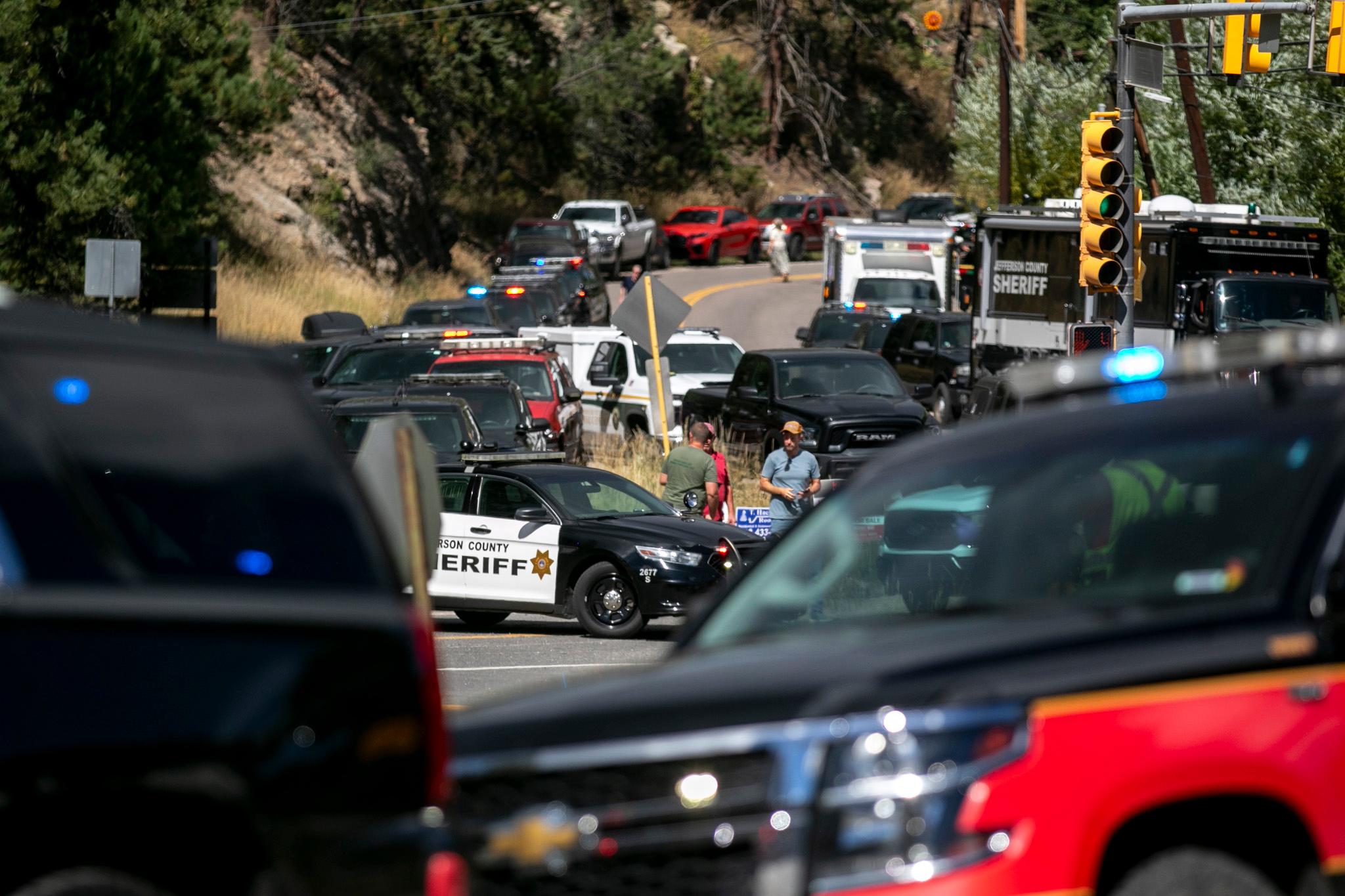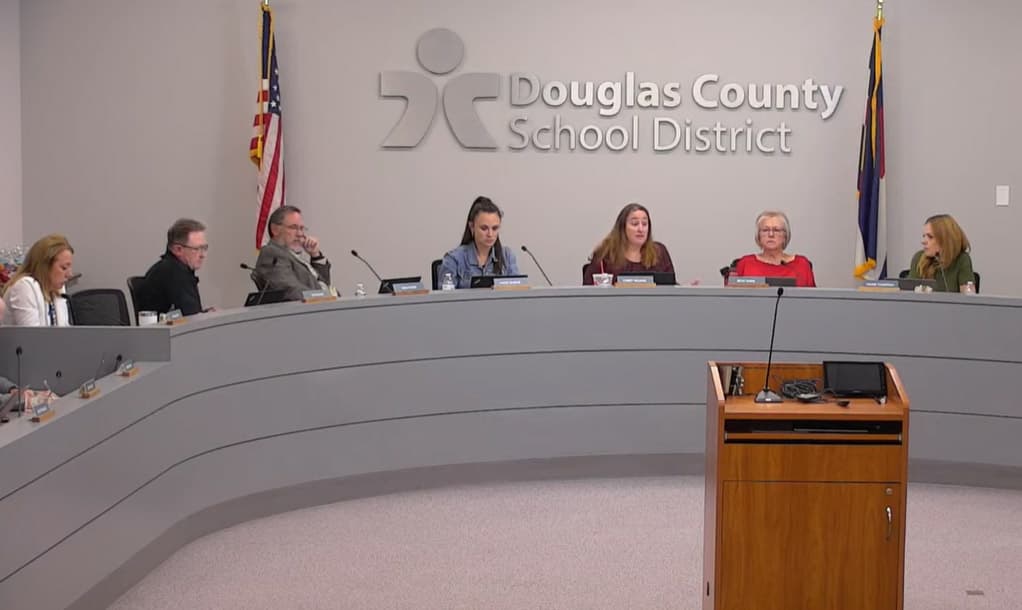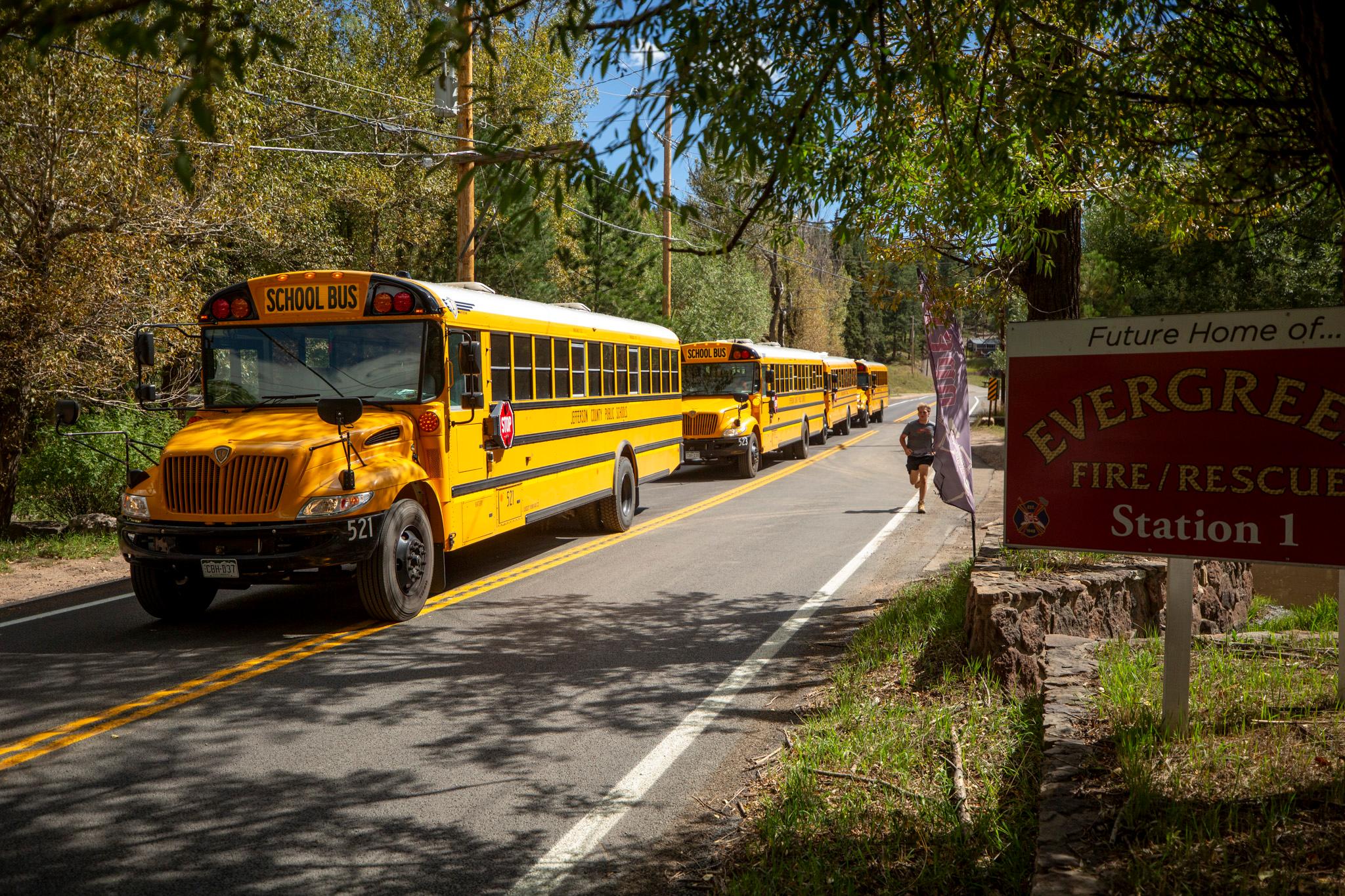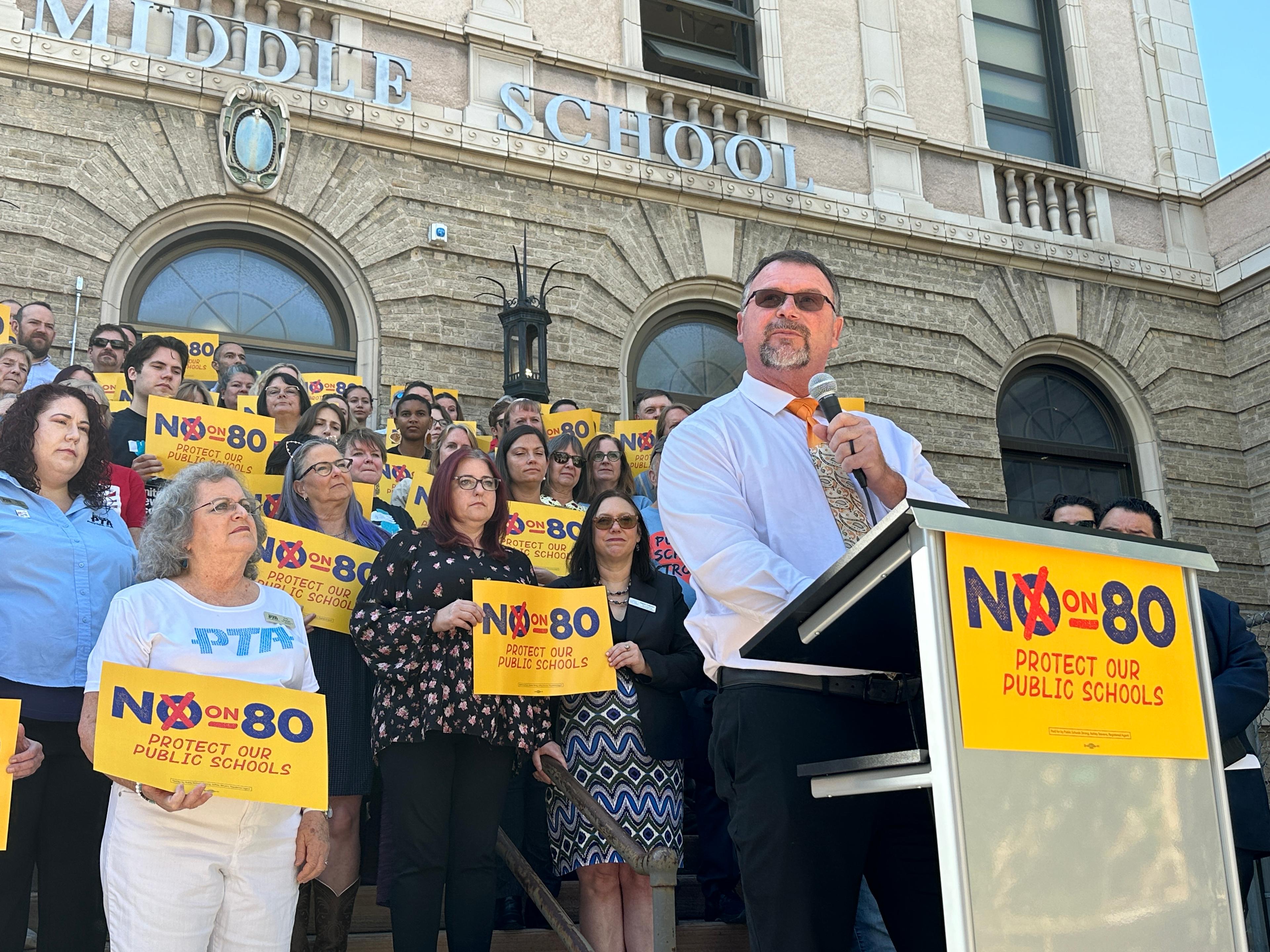
A coalition of parents, educators and advocates for public schools rallied Friday against a proposed constitutional amendment they say will usher in private school vouchers that they call harmful, destructive and discriminatory.
For 30 years, public school children in Colorado have had the right to attend any public school for free even if they don’t live in that school district under the state’s Public Schools of Choice law. State law also permits families to enroll their children in private school or home school.
Amendment 80 would enshrine those rights to school choice in the constitution, explicitly naming private schools and “future school innovations in education.”
“Colorado voters — do not be fooled by Amendment 80,” said Lisa Danos, an English teacher and librarian from Gunnison. “It does nothing to increase parent choice or improve education in our state.”
The true intention of the measure is in dispute.
Backers of the measure say its intention is simple: to protect parents’ rights to educate their children the way they believe is best, whether that be traditional public schools, public charter schools, private schools or homeschools. They are afraid that the rights of children to attend charter schools are eroding. The state’s main organization advocating for charter schools, the Colorado League of Charter Schools, has voted to not take a position on the ammendment.
“After careful consideration and deliberation at its most recent meeting, the league’s board of directors voted to take no position on Amendment 80 from this fall’s ballot.”
The No on Amendment 80 Campaign includes the Colorado Education Association, Stand For Children, ACLU of Colorado, and a number of other education and parent organizations.
Those at the rally argued that there has been strong bipartisan support for the state’s school choice laws for three decades. They contend the measure is really about diverting money away from public schools to fund private schools by permanently creating a right to private schools in Colorado's constitution.
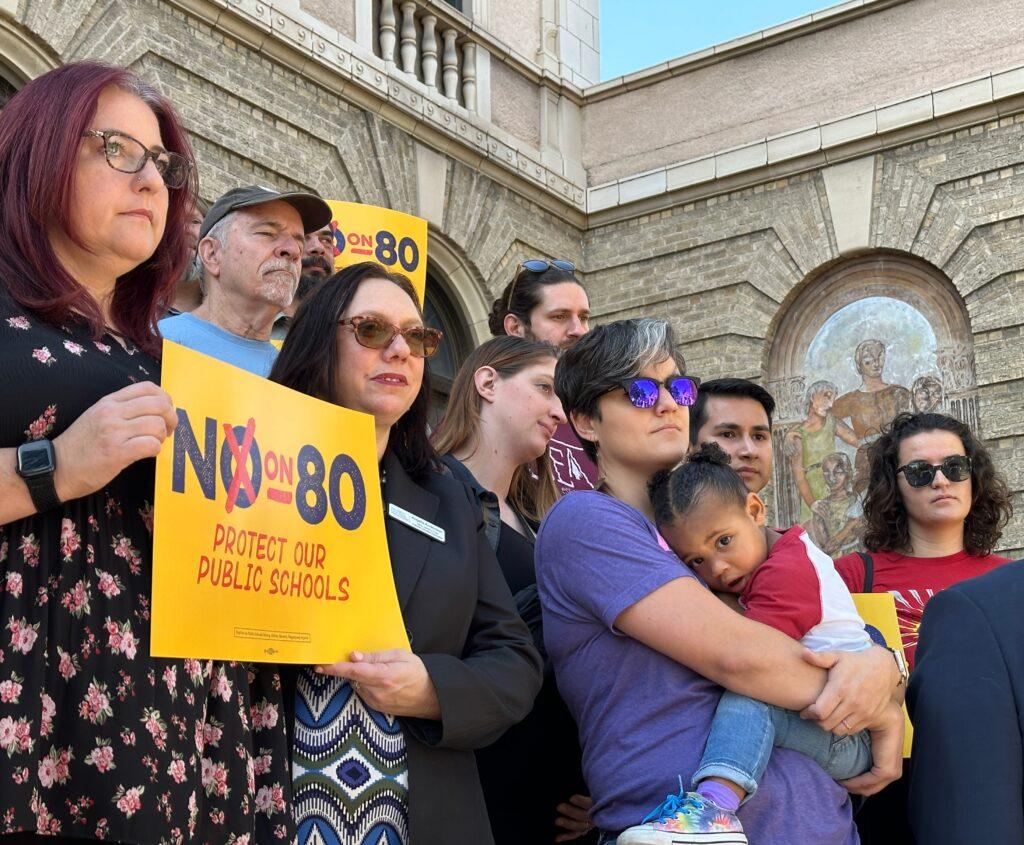

Kevin Vick, president of the Colorado Education Association, said vouchers aren’t popular so inserting “private schools” into the constitution lays the groundwork that they should be also funded with public money.
“This is a gateway to be able to make that next leap,” he said. “This simply opens the door to then forcing a or promoting a voucher campaign in future years.”
He said public schools serve 95 percent of students and “siphoning off scarce resources” from public schools to private schools will hurt schools that already don’t have the funds to adequately serve all students.
Many rural schools struggle to pay teachers competitive salaries and many don’t have enough funds to operate five days a week. Fort Morgan School District Superintendent Rob Sanders said many rural areas don’t have private schools.
“Meaning education funding will be diverted from rural communities like mine and over 140 other rural and small rural school districts in the state of Colorado and sent to metro areas,” he said. “This is simply unacceptable.”
There are other concerns. Cat Ordoñez, a policy attorney with ACLU Colorado, said private schools pose significant civil rights concerns. Some have denied admission to students based on religion, sexual orientation, disability or other characteristics. The organization is also concerned that the proposed amendment includes a new constitutional right for a parent to direct their child's education.
“Some parents may argue that this right allows them to ban books or to get race or sex education out of the school's curriculum request,” she said. “Some parents may argue that it provides a basis for them to sue school for following state nondiscrimination laws and others may use it to follow Florida's lead and push for ‘Don't say gay’ policies in schools.”
Backers of the measure say none of the fears about tax dollars going to private schools have merit
“That's not the goal of this measure,” said Michael Fields, president of Advance Colorado, a conservative action committee that spearheaded the signature gathering. “It's really just cementing the school choice laws that we have in Colorado right now into the constitution.”
Although he personally supports education savings accounts, a form of voucher that allows parents to use public funds for private school tuition, he said that is not the intention of the amendment. He argues that Amendment 80 protects parents’ rights to educate their children the way they believe is best –– and that choice is under assault.
He points to a proposed bill debated in the past legislative session that proposed restrictions on charter schools such as making them pay more to use buildings owned by school districts. It was killed.
A report by the organization, “Why School Choice Must Be Placed in the Colorado Constitution,” states that by placing school choice in the state constitution, that right can’t be taken away by future legislatures.
“Future legislatures could change our school choice options, they could limit them, they could make it harder on home schools, private schools,” Fields said. “You don't know who the next governor is, who's in the legislature. Putting it in the constitution allows parents to really have more concrete assurance that school choice will continue in the future.”
By placing school choice in the constitution, any future revision or repeal of the state’s school choice law would have to go to a vote of the people, the report argues.
As for concerns about inserting parents’ rights into the constitution leading to book challenges or other legal disputes, Fields said the measure doesn’t change current law or procedures. He said court challenges could come from denying a charter school, not objections over curriculum, for example.
Ready Colorado, a conservative education advocacy group, the Colorado Catholic Conference, and the Colorado Association of Private Schools also support the measure.
What’s happening in other states?
Many states offer families so-called education savings accounts to tap into to pay private school tuition. Others have voucher programs or tax credits for private school expenses.
Colorado voters have rejected education voucher ballot initiatives three times and more than a dozen legislative attempts to introduce vouchers or education savings plans have failed in the past decade.
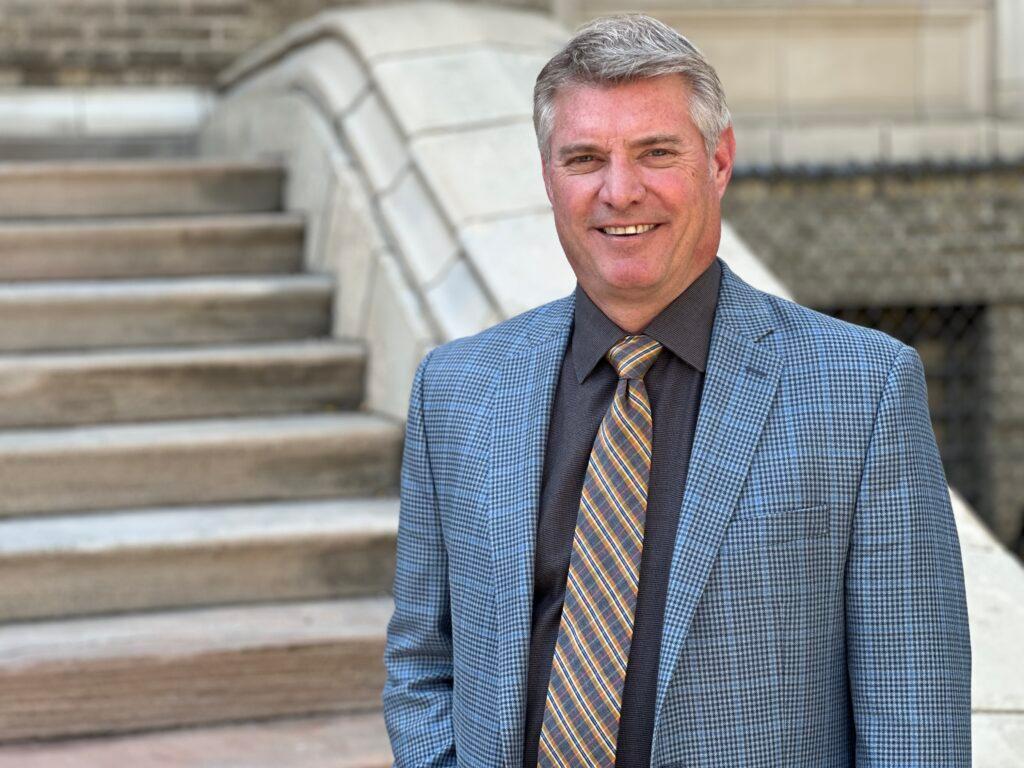

Opponents are worried about potential costs. Vick said Arizona’s voucher program was projected to cost $64 million and it ballooned to $550 million in year one. In 2024, it’s expected to reach $900 million. Noel Candelaria, secretary-treasurer of the National Education Association and special education teacher who spoke at the rally, called vouchers “deceptive” and “destructive.”
He said in Arizona, 80 percent of voucher recipients were already in private schools, in New Hampshire, nearly 90 percent were and in Wisconsin, it’s 75 percent.
A Colorado legislative analysis said the measure would have no immediate impact on current law but could lead to future legislative changes and if there are court orders, changes in funding for education.

